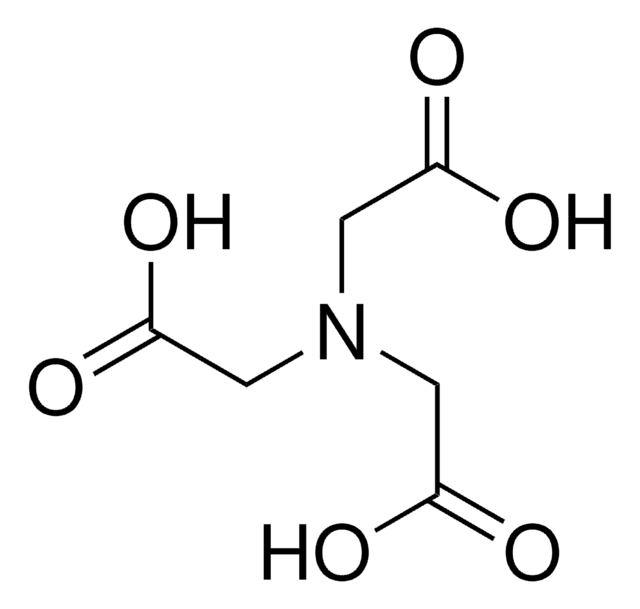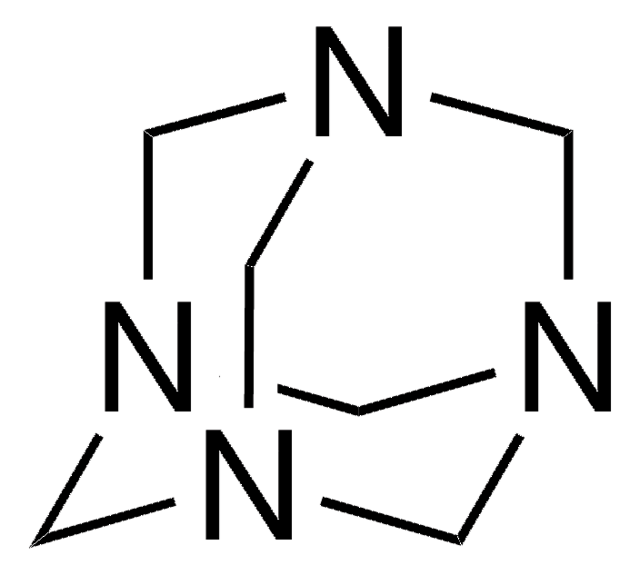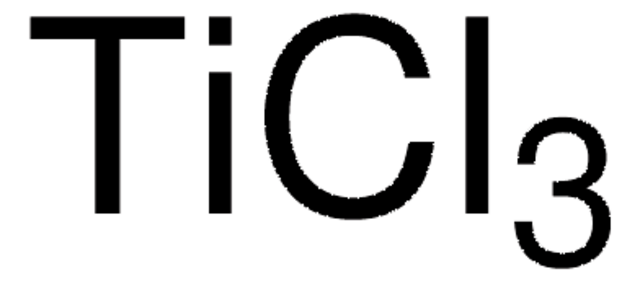71853
Sodium perchlorate monohydrate
puriss. p.a., ACS reagent, ≥98.0% (T)
About This Item
Recommended Products
grade
ACS reagent
puriss. p.a.
Assay
≥98.0% (T)
form
powder, crystals or chunks
impurities
≤0.0005% total nitrogen (N)
pH
6.0-8.0 (25 °C, 50 mg/mL in H2O)
anion traces
chloride (Cl-): ≤30 mg/kg
sulfate (SO42-): ≤20 mg/kg
cation traces
Ca: ≤10 mg/kg
Cd: ≤5 mg/kg
Co: ≤5 mg/kg
Cr: ≤5 mg/kg
Cu: ≤5 mg/kg
Fe: ≤3 mg/kg
K: ≤50 mg/kg
Mg: ≤5 mg/kg
Mn: ≤5 mg/kg
Ni: ≤5 mg/kg
Pb: ≤5 mg/kg
Zn: ≤5 mg/kg
heavy metals: ≤5 ppm (by ICP-OES)
SMILES string
O.[Na+].[O-]Cl(=O)(=O)=O
InChI
1S/ClHO4.Na.H2O/c2-1(3,4)5;;/h(H,2,3,4,5);;1H2/q;+1;/p-1
InChI key
IXGNPUSUVRTQGW-UHFFFAOYSA-M
Looking for similar products? Visit Product Comparison Guide
Related Categories
General description
Application
Signal Word
Danger
Hazard Statements
Precautionary Statements
Hazard Classifications
Acute Tox. 4 Oral - Eye Irrit. 2 - Ox. Sol. 1
Storage Class Code
5.1A - Strongly oxidizing hazardous materials
WGK
WGK 1
Flash Point(F)
Not applicable
Flash Point(C)
Not applicable
Regulatory Listings
Regulatory Listings are mainly provided for chemical products. Only limited information can be provided here for non-chemical products. No entry means none of the components are listed. It is the user’s obligation to ensure the safe and legal use of the product.
PRTR
Class I Designated Chemical Substances
FSL
Group 1: Oxidizing solids
Perchlorates
Hazardous rank III
3rd oxidizing solid
ISHL Indicated Name
Substances Subject to be Indicated Names
ISHL Notified Names
Substances Subject to be Notified Names
JAN Code
71853-250G:
71853-VAR:
71853-BULK:
71853-6X1KG:
71853-6X250G:
71853-1KG:
Certificates of Analysis (COA)
Search for Certificates of Analysis (COA) by entering the products Lot/Batch Number. Lot and Batch Numbers can be found on a product’s label following the words ‘Lot’ or ‘Batch’.
Already Own This Product?
Find documentation for the products that you have recently purchased in the Document Library.
Customers Also Viewed
Our team of scientists has experience in all areas of research including Life Science, Material Science, Chemical Synthesis, Chromatography, Analytical and many others.
Contact Technical Service











